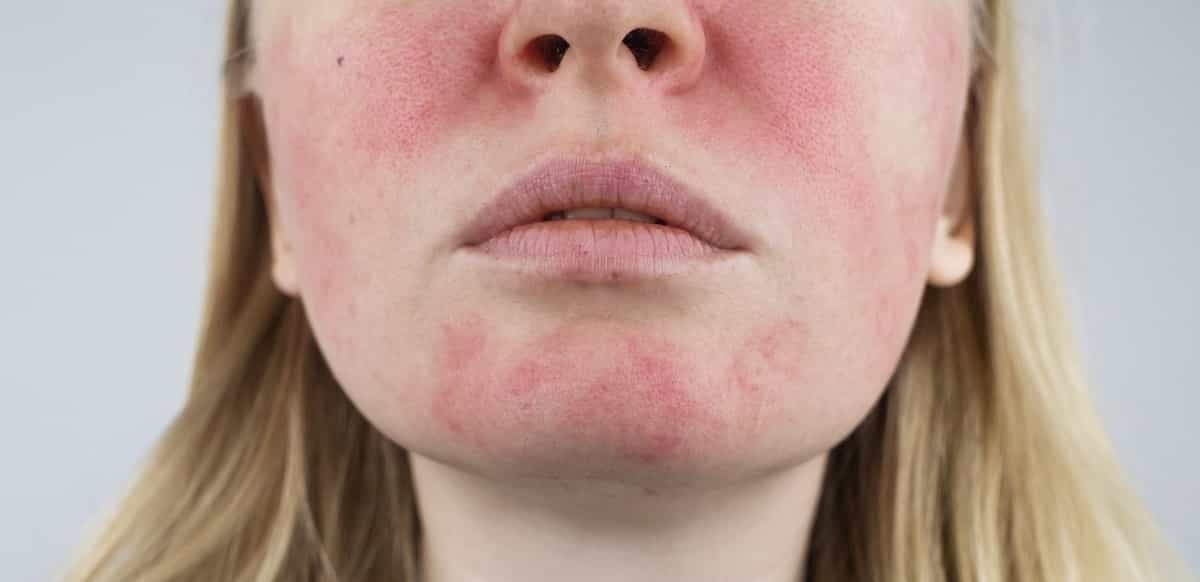Atopic dermatitis is a common skin condition that affects both men and women, but appears to be more common in women . Atopic dermatitis, also known as atopic eczema , is a chronic condition that can be debilitating for sufferers.
Atopic dermatitis is characterized by dry, itchy, red skin . These symptoms can appear on different parts of the body, including the face , neck , hands , feet , elbows, and knees . The severity of symptoms varies from person to person and can be made worse by factors such as stress or exposure to irritants .
Atopic dermatitis can occur at any age , but in many cases it begins in childhood. Furthermore, women appear to be more susceptible to the disease than men. This may be due to increased skin sensitivity and the effects of female hormones.
Many women experience an improvement in atopic dermatitis symptoms during pregnancy . However, some women may find that their condition worsens after giving birth . This can be due to a number of factors, such as hormonal changes in babies, tiredness and stress . Atopic dermatitis is known to be one of those skin diseases which are affected by pregnancy in various and unpredictable ways; in fact, it can both get better and worse during pregnancy. This fact shouldn't scare you, but you have to act quickly to choose the best treatment. There are few systemic drugs that can be used during pregnancy without any risk to the fetus.
Atopic dermatitis can also be related to the menstrual cycle . Some women notice that their symptoms get worse during the premenstrual period or menopause. Again, this could be due to hormonal factors or emotional stress during this period.
The cause of atopic dermatitis is not fully understood, but a combination of genetic and environmental factors appear to contribute to the disease. There are some known risk factors that increase the likelihood of developing atopic dermatitis, such as a family history of the disease or allergies.
Using harsh skin care products or exposure to irritants can also cause or worsen atopic dermatitis symptoms. Women who work in occupations that involve exposure to chemicals or who come into frequent contact with water, such as hairdressers or food workers, may be particularly prone to developing atopic dermatitis.
For women with atopic dermatitis, treatment can be challenging, but several treatment options are available. Treatment of atopic dermatitis may include moisturizing creams and ointments, topical corticosteroids , and topical immunomodulators . Antihistamines or antibiotics may also be needed in some cases. In severe cases of atopic dermatitis, rapid-acting oral cortisone is used, but it must be administered periodically for short periods of time and always with the consent and prescription of the doctor or specialist who is treating the patient.
However, the treatment of atopic dermatitis is not only pharmacological. Women with atopic dermatitis need to take care of their skin and try to avoid aggravating factors. This may include using mild detergents , avoiding wool or synthetic clothing, and avoiding irritants such as perfume . Furthermore, stress and fatigue can worsen the symptoms of atopic dermatitis; therefore, women should try to reduce the stress in their life and ensure adequate sleep. People with atopic dermatitis experience severe sleep disturbances due to the intense itching caused by the disease . These changes include difficulty falling asleep at night and waking up in the morning and waking up frequently during the night. Insomnia and decreased total sleep time can in turn lead to daytime sleepiness, fatigue, irritability, poor concentration, decreased growth hormone production, and behavioral and, in young adults, disciplinary problems.
Also, women with atopic dermatitis should be careful when using makeup and makeup. Products such as foundations, creams and lipsticks can irritate the skin and aggravate the symptoms of the disease. Women should try to use gentle and natural makeup and always remove makeup and cleanse the skin at the end of the day.
In conclusion, atopic dermatitis is a common skin condition that affects both men and women, but women appear to be more prone to the disease.
You may also like
Symptoms and treatment of atopic dermatitis in men
Atopic dermatitis is a chronic inflammatory skin disease affecting up to 20% of the population. Furthermore, it is the most common form of eczema and occurs mainly in children, but can affect adults as well. Atopic dermatitis results from a combination of genetic and environmental factors . These elements help create an overactive state of… Continua a leggere Symptoms and treatment of atopic dermatitis in men
Combatting Hair Loss: Current treatments and promising studies
Hair loss affects millions globally, manifesting distinctively across genders. With varying incidences worldwide, understanding its causes is crucial. This article delves into symptoms, current treatments, and promising studies, shedding light on related skin and dental issues.
Acne: The disparities between teenage and adult acne
Acne, a common skin condition, affects millions globally, transcending age and geography. This article delves into the symptoms, the disparities between teenage and adult acne, and explores both traditional and revolutionary new treatments, including those still under trial. Additionally, it covers related dermatological issues like hair loss, atopic dermatitis, psoriasis, and dental care advancements.
Atopic Dermatitis: New treatments and research studies are transforming patient care worldwide.
A comprehensive exploration of atopic dermatitis, psoriasis, and related skin conditions including hair loss, acne, and dental care. New treatments and research studies are transforming patient care worldwide.
Dental Implants and Oral Hygiene: Methods and Treatments
This article delves into the world of dental implants and oral hygiene, exploring various methods and treatments available. It highlights the challenges associated with maintaining dental hygiene, the intricacies of implantology, and emerging research in the field. Additionally, it touches upon the innovative treatments for related concerns such as hair loss, atopic dermatitis, psoriasis, and acne.
